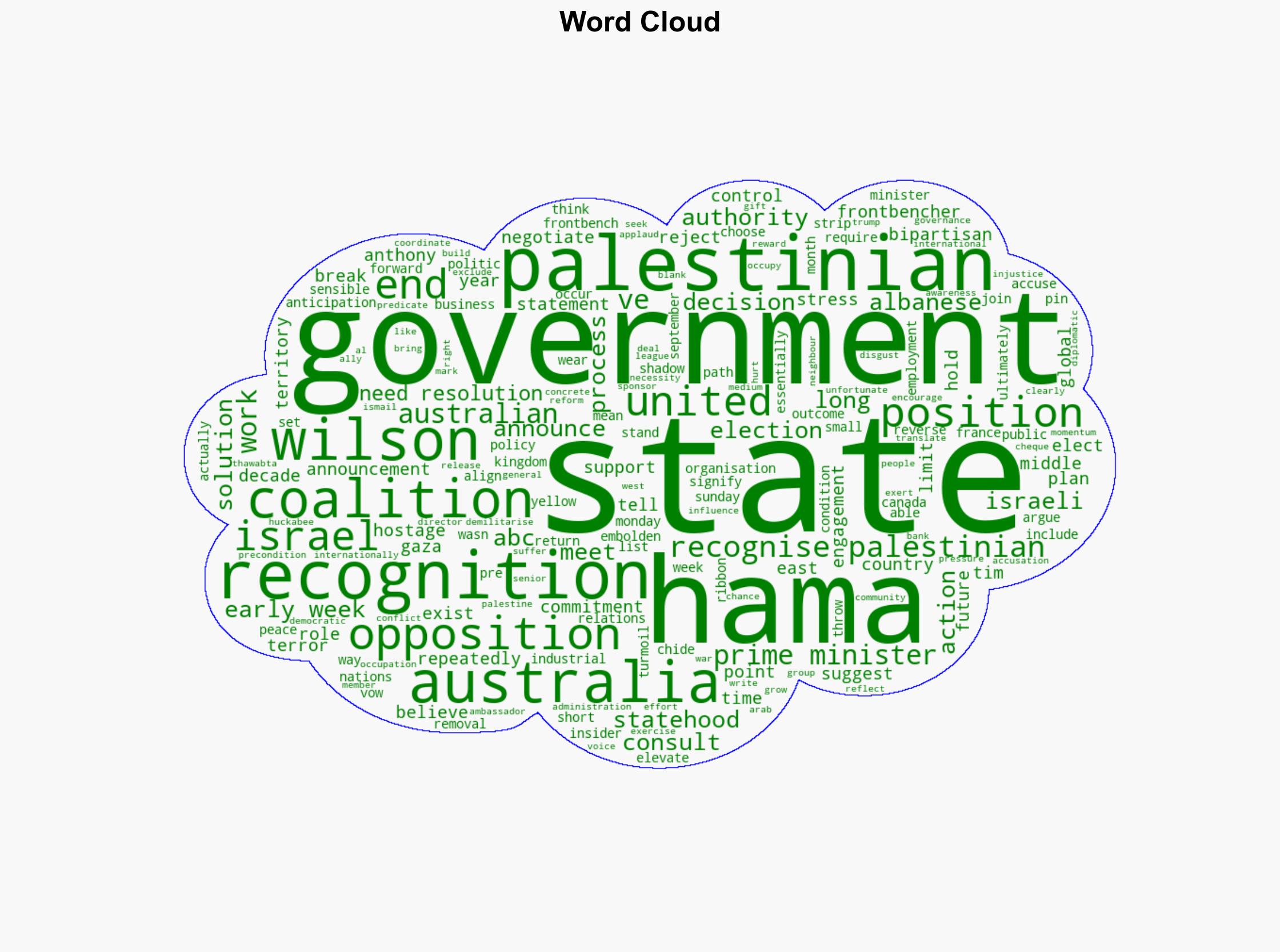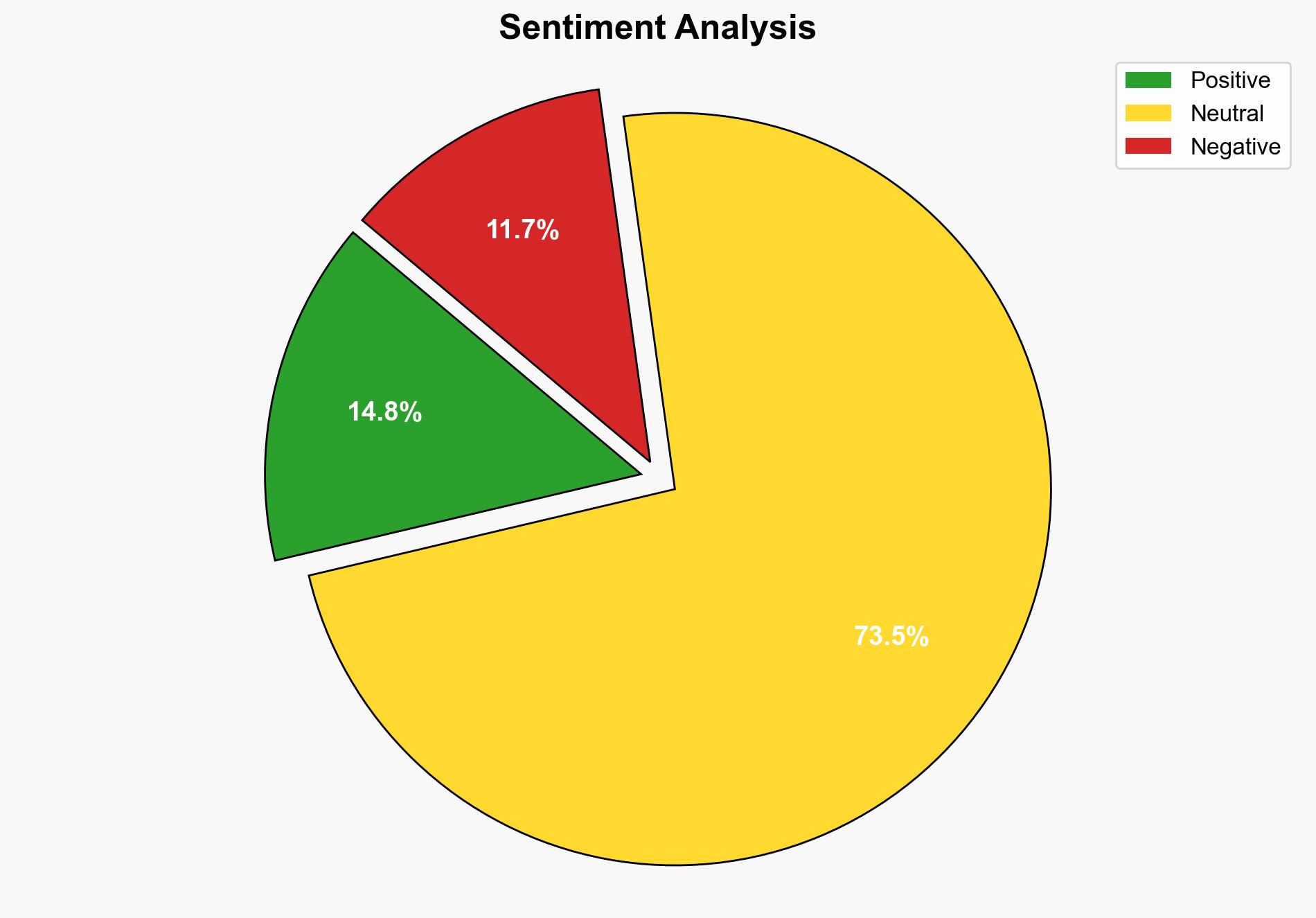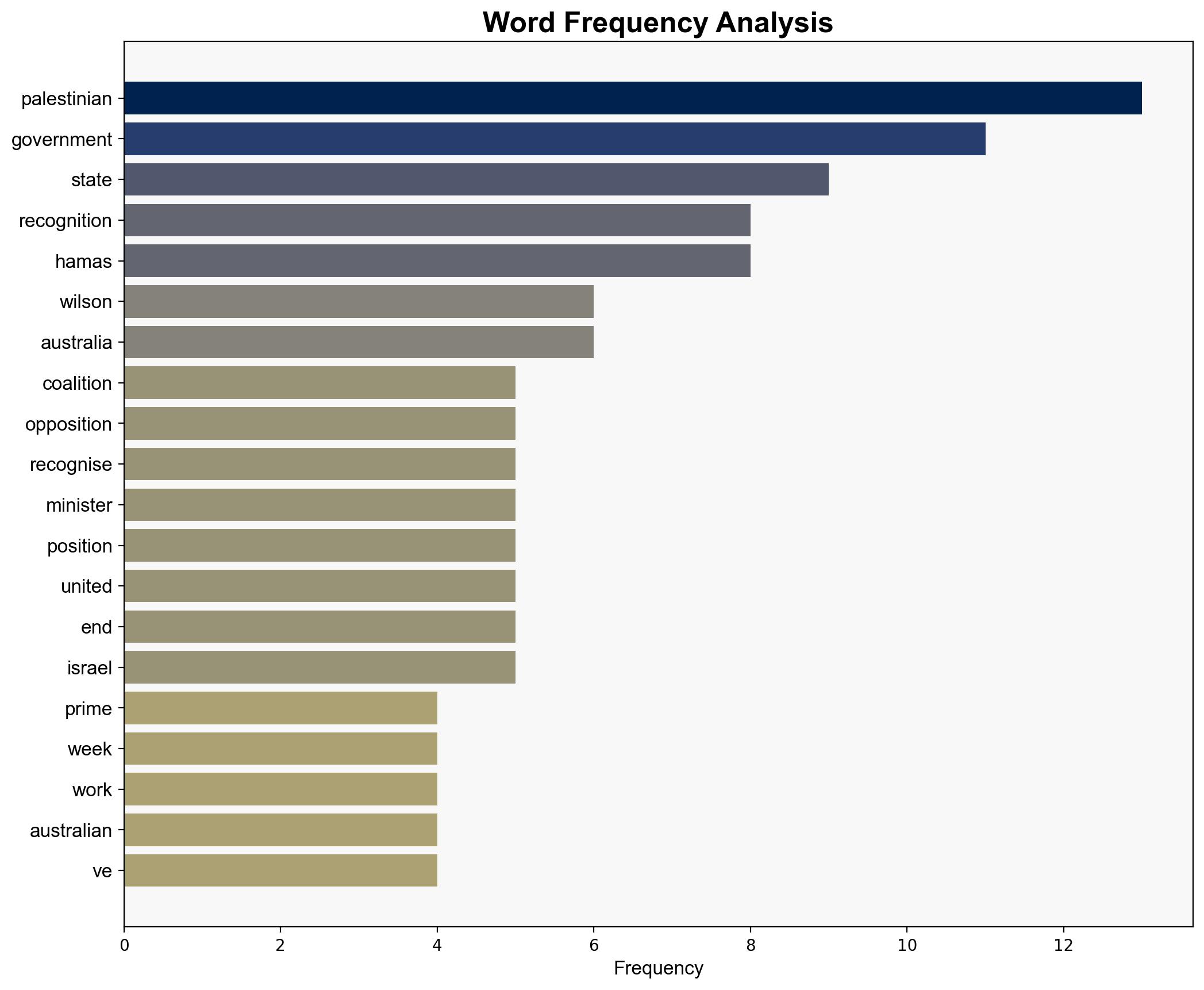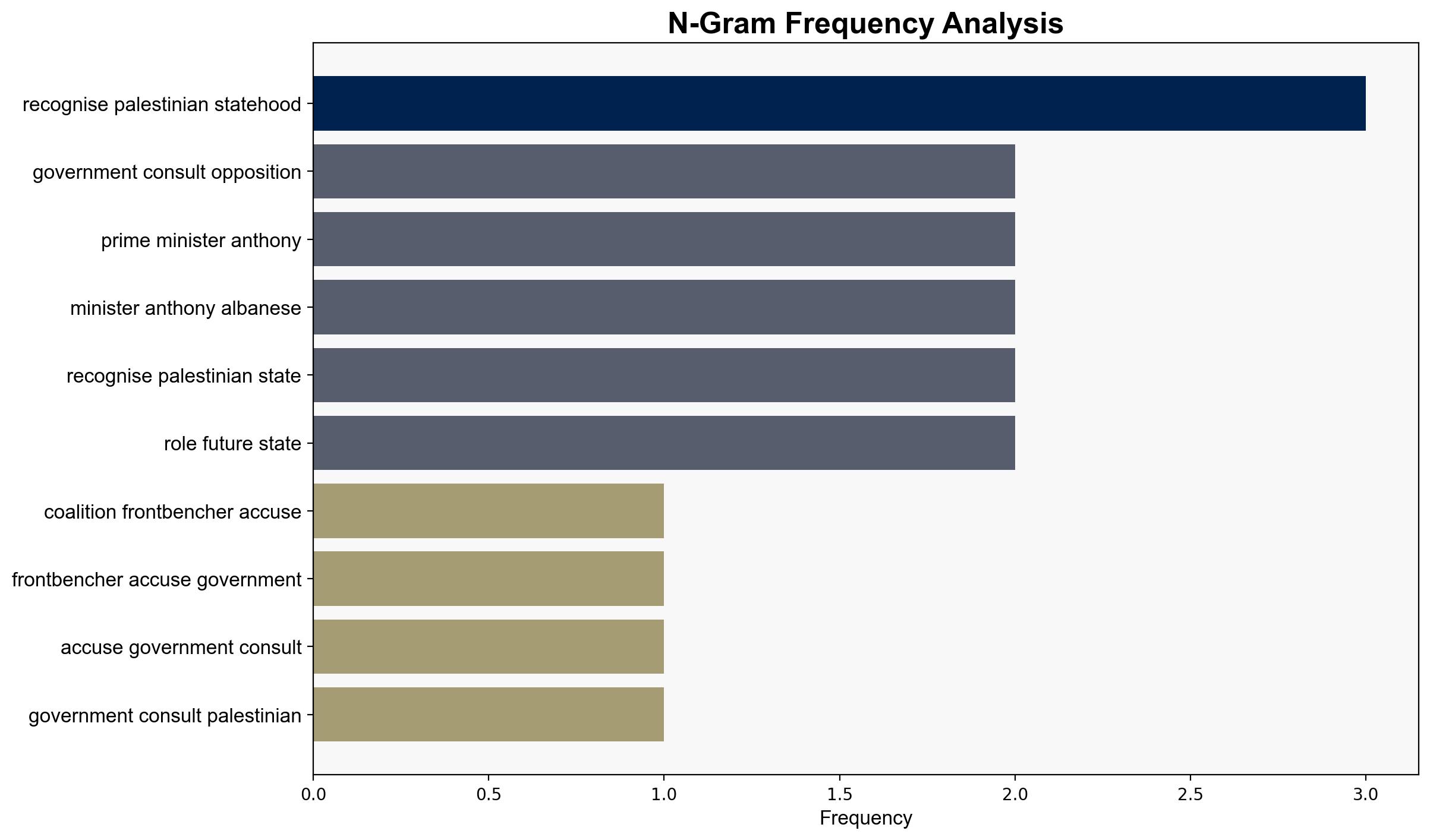Coalition frontbencher says Australia should work with Trump on Palestine – ABC News (AU)
Published on: 2025-08-17
Intelligence Report: Coalition frontbencher says Australia should work with Trump on Palestine – ABC News (AU)
1. BLUF (Bottom Line Up Front)
The most supported hypothesis is that Australia’s recognition of Palestinian statehood is a strategic move to align with broader international efforts rather than a unilateral decision. Confidence level: Moderate. Recommended action: Engage in diplomatic discussions with key allies to ensure a coordinated approach and mitigate potential backlash from opposing entities.
2. Competing Hypotheses
1. **Hypothesis A**: Australia’s decision to recognize Palestinian statehood is primarily driven by internal political dynamics and a desire to differentiate from previous bipartisan policies.
– **Supporting Evidence**: The lack of consultation with the opposition and the deviation from long-standing bipartisan positions suggest a domestic political motive.
2. **Hypothesis B**: The recognition is part of a coordinated international effort to support a two-state solution and align with allies like France, the UK, and Canada.
– **Supporting Evidence**: The alignment with other nations and the timing of the announcement before a UN meeting indicate a strategic international collaboration.
Using the Analysis of Competing Hypotheses (ACH) 2.0, Hypothesis B is better supported due to the broader geopolitical context and alignment with international allies.
3. Key Assumptions and Red Flags
– **Assumptions**:
– The Australian government believes international recognition will pressure both parties towards peace.
– The coalition’s opposition is based on security concerns regarding Hamas.
– **Red Flags**:
– Potential overestimation of Australia’s influence on the peace process.
– Lack of clarity on how recognition will concretely advance peace negotiations.
– Possible underestimation of domestic political backlash.
4. Implications and Strategic Risks
– **Geopolitical Risks**: Strained relations with Israel and potential backlash from pro-Israel allies.
– **Security Risks**: Increased tension in the region could lead to escalated conflict, impacting global security.
– **Economic Risks**: Potential economic repercussions if diplomatic relations with key Middle Eastern partners are affected.
5. Recommendations and Outlook
- Engage in multilateral discussions with allies to ensure a unified approach to the Israeli-Palestinian conflict.
- Monitor regional reactions closely to adjust diplomatic strategies as needed.
- Scenario Projections:
– **Best Case**: Coordinated international pressure leads to renewed peace talks.
– **Worst Case**: Recognition leads to heightened tensions and conflict escalation.
– **Most Likely**: Limited immediate impact, with gradual alignment of international efforts towards peace.
6. Key Individuals and Entities
– Tim Wilson
– Anthony Albanese
– Mark Huckabee
– Ismail Al Thawabta
7. Thematic Tags
national security threats, geopolitical strategy, international diplomacy, Middle East peace process




